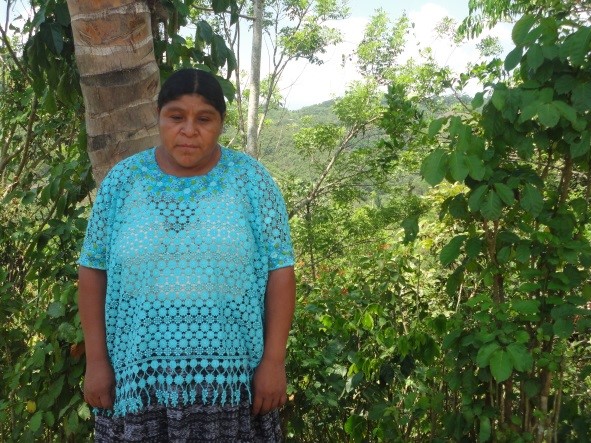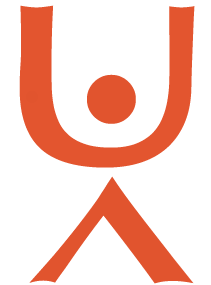Manuela Che can’t read or write – she never went to school as a child. She is 45 years old, married with seven children, and lives in the remote village of La Escopeta, Santa Maria Cahabon, Guatemala.
Manuela’s daughter, María del Carmen, has a hearing impairment that has made it extremely difficult for her to communicate with her family and even harder for her to communicate with neighbors and peers. She went to school until she was 7, but teachers had such trouble interacting with her that it was nearly impossible for her to continue studying. María del Carmen was teased by the other children for her disability and now spends most of her time playing at home with her brothers. She often gets frustrated when she’s given difficult tasks and ends up angry and crying.
Manuela says that the day she realized her daughter had a hearing disability was one of the most difficult moments of her life.
Before joining the Trickle Up program, Manuela’s family relied on her husband’s work, although Manuela also used to raise chickens to bring in extra profits. However when one of her sons pursued higher education and got married, the family incurred significant costs and lost a lot of capital, trapping them in the cycle of poverty.
Because of her financial struggles and the difficulties in caring for María del Carmen, Manuela was selected to participate in Trickle Up and ADEMAQK’s inclusive program for families affected by a disability. With a seed capital grant of Q1,200 ($154), she opened a store to sell basic necessities to her neighbors. Despite her initial success, another neighbor participating in the program opened a similar shop in a better location, causing Manuela’s sales to gradually decline due to increased competition.
At first she was discouraged, but her husband reminded her not to give up. He also said they should give thanks to God for the neighbor’s success, as the competing store was run by a single mother of a child with physical disabilities. Sympathetic to her neighbor’s situation and confident of her husband’s support, Manuela decided to switch her capital to the business that had worked for her family for years: raising chickens. She invested her profits and capital from the store in buying chickens to sell to neighboring communities. She currently owns 30 chickens, which she will sell in the next two months for Q3,000 ($384) total.
“This experience taught me that when a business is not going well, to not be discouraged or get angry with my neighbors, but to seek an alternative business to support my family income,” Manuela says.
She is an active participant in the community’s saving group started by Trickle Up. She has saved a total of Q675 ($86) so far and is projected to save more than Q1,200 ($154) by the end of her first year in the program. Manuela notes the importance of the group within the community because it helps them save their profits.
“In this way, I’m ensuring something for our future within a year,” she says.
The savings group was critical in helping revive her business by giving her the credit she needed to purchase chickens. Manuela plans to reinvest the majority of her savings in the next batch of chickens to raise and sell because she knows it is a profitable business. On top of Manuela’s financial success, the new business has also brought positive benefits to María del Carmen. While María del Carmen could not participate much around the store as interacting with customers is difficult, her hearing does not affect her ability to care for or feed the chickens. This involvement is crucial to her development and will help her learn important livelihood and financial literacy skills to generate her own income someday.
Manuela Che of La Escopeta, Guatemala
Mother, chicken farmer, unshakable entrepreneur



